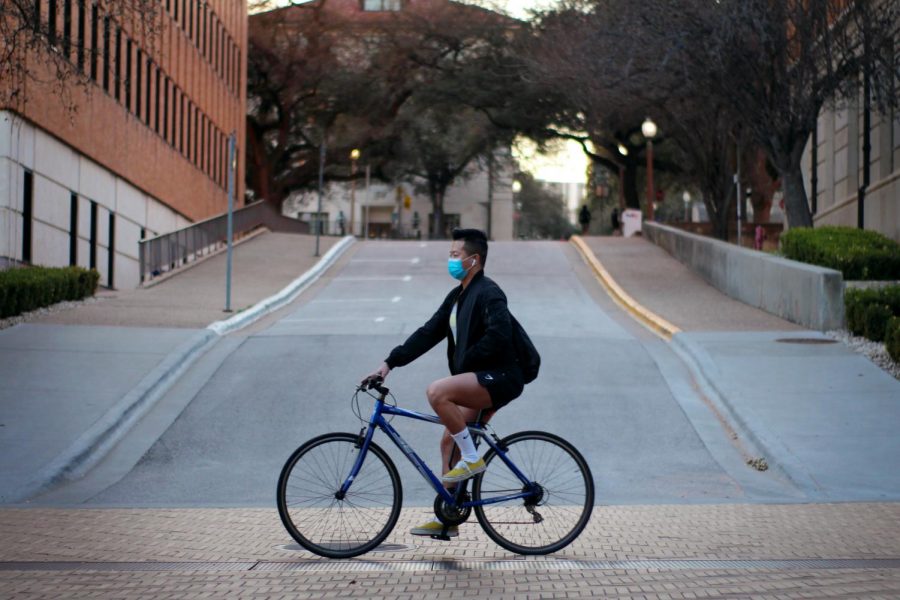Orange Bike Project offers students cheap alternatives to renting, fixing bikes
April 14, 2021
While on her routine ride around Lady Bird Lake, Amelia Baumhart Leveille said her rental bike came to a grinding halt. It was a cyclist’s worst nightmare — a flat tire.
When she got back to campus, the Orange Bike Project and their shop coordinators were there to help.
“There were a few of them there, all doing something good, fixing it, checking the height,” computer science freshman Baumhart Leveille said. “They greased it up, and I was good to go.”
Tucked away in a corner of the 27th Street Garage, the Orange Bike Project (OBP) is a student-run bicycle repair shop geared towards providing students, staff and faculty with cheap bicycle repair and rental alternatives. However, the pandemic has forced significant changes to the operation.
“Our mission is ultimately to teach students to fix their own bikes,” said Eric Wang, an OBP mechanic and public health junior. “But we can’t really do that because of social distancing.”
Around 10 years ago, the OBP formed as an alternative to the already existing Yellow Bike Project, a community-based cycling workshop in East Austin.
“It was the same concept except closer for UT students,” Wang said. “Rather than biking out five miles to east Austin … you can just come here instead.”
Before the pandemic, shop coordinator and architectural engineering senior Ryan Tomita said clients would come into the shop and OBP staff would teach them how to fix their bike with the provided tools.
“We would assess your bike, and then walk you through the process of fixing it yourself,” Tomita said. “The actual cost, back then, for fixing it was free because we had people work alongside us.”
Now, following social distancing precautions, Tomita said they can’t let anyone inside except workers.
“We pick up bikes and sanitize them at the front, then we bring them into our shop,” Tomita said. “But we have to charge a service fee now because we’re not really able to teach people unless it’s a quick fix and we can teach them out front (of the shop).”
Tomita said something that differentiates the OBP from other bicycle repair shops is its focus on teaching and helping clients learn to love biking.
“We’d like to teach them a little more about their bikes, so hopefully someday, when our shop can open a little bit more in person and allow people inside, they can actually work on their own bikes,” Tomita said.
Despite the increase in repair prices, Baumhart Leveille said the main reason she chose to rent from the OBP is because of how inexpensive it is. It only cost her $50 to rent a bike from the shop for the semester.
“They’ll fix it for you if you have any problems,” Baumhart Leveille said. “It’s been really good not having to worry about it needing to be fixed.”
Ultimately, Wang said the Orange Bike Project hopes to alleviate the cost for college students’ budgets.
“It’s not a big chain of shops like Trek, so we’re definitely more approachable,” Wang said. “You can always have your bike looked at for free, so it doesn’t hurt to come visit us.”



